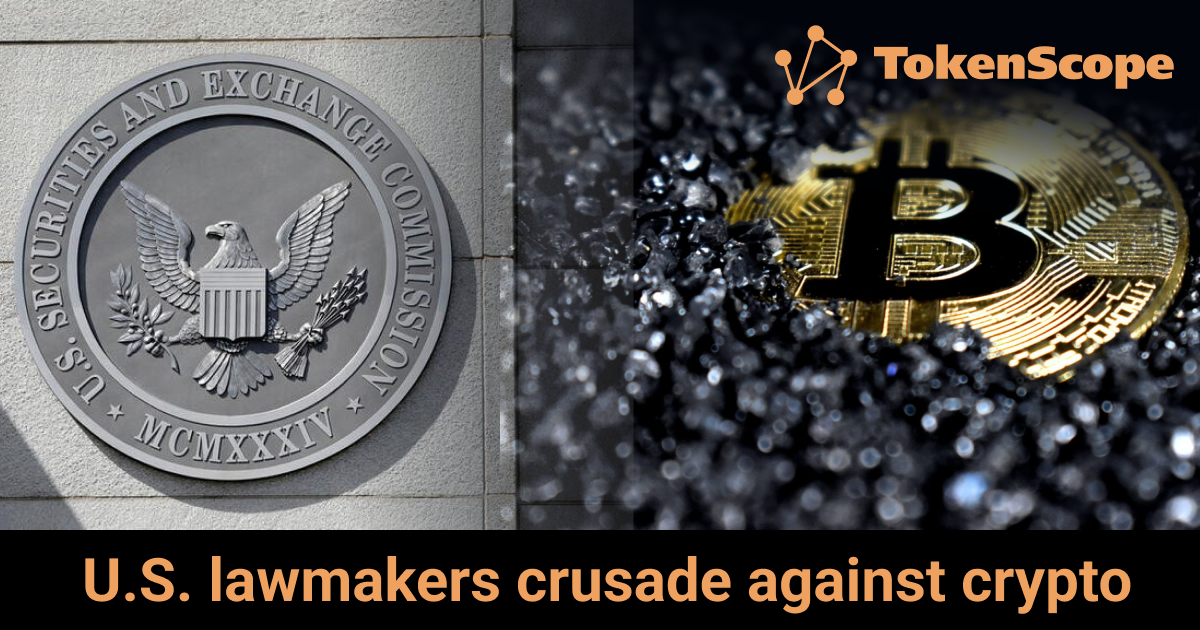Crypto regulation in the world: weekly digest #38

USA
The U.S. Financial Accounting Standards Board (FASB) issued a proposal to provide accounting and disclosure rules for certain types of crypto assets to make it more accurate for companies to reflect the economics of such assets. The proposed rules, if accepted, will apply to both well-known cryptocurrencies such as Bitcoin and Ethereum, as well as other crypto assets.
The FASB proposed to require crypto assets that meet six specific conditions be measured at fair value and changes in value recognized in each reporting period as profit or loss. Fair value represents the price that would be received if a company sold the crypto asset in an orderly transaction to a willing buyer. The companies would also present crypto assets separately from other intangible assets on the balance sheet as well as disclose information about significant crypto holdings and changes in those holdings.
TokenScope Team comments:
After the collapse of the FTX exchange and its subsidiary Alameda Research financial watchdogs around the Globe became concerned about the problem of accounting rules for crypto on the balance sheets of financial institutions. This concern was also expressed by international regulators such as the IMF and the G20 Financial Stability Board as traditional frameworks that set standards for bank capital adequacy, such as Basel III, are not suitable for cryptocurrencies.
There is still no comprehensive regulation of cryptocurrencies in the US, both the CFTC and SEC even compete on regulatory issues. The SEC considers cryptocurrencies to be securities, while the CFTC considers them to be commodities. The rules of exchange trading for securities and commodities differ, and it is impossible to fulfill them by the principle of analogy. Therefore, the Kraken crypto exchange has closed staking in the U.S. market and this week Binance is being charged by CFTC with illegal derivatives exchange trading.
The FASB proposal specifically refers to the creation of a legal framework that allows for a better assessment of financial investments in cryptocurrencies and reflect them separately in financial statements. Therefore, such initiatives are positive for the cryptocurrency market, since a clear legal framework will attract more institutionalists, such as major banks and investment firms.
EU
The European Parliament’s Committee on Economic Affairs has approved a bill proposal, which expands the requirements of the EU AML/CFT directives to DAO, NFT and other DeFi platforms.
The provisions of the document will apply to decentralized finance if it is directly or indirectly controlled, including through smart contracts or voting protocols, by identifiable individuals and legal entities.
It is assumed that if the bill passes the European Parliament, then any crypto platforms will have to conduct due diligence checks of all clients and report suspicious transactions to the authorities. So far, such requirements apply only to CASPs that does not include DeFi. KYC will also be mandatory for transactions over €1000.
Enhanced measures are provided for correspondent relationships with CASPs outside the EU and payments using non-custodial wallets. The above limit will be extended to the latter if the owner does not pass the identification procedure and the operations are conducted for commercial purposes.
Interaction with unlicensed organizations may be prohibited. Anonymous crypto-accounts, private wallets and transaction anonymization services may also be banned. AML/CFT rules are being updated in the EU due to forthcoming vote in the European Parliament on the MiCA bill, which will give impetus to the development of the cryptocurrency industry in the states of the bloc.
News from other countries:
- Testing of a national CBDC begins in Russia, and it is also planned to launch a state-owned crypto exchange alongside with creation of legal framework for crypto.
- El Salvador president Nayib Bukele has officially signed a Bill eliminating all taxes in technological innovations and manufacturing such as microelectronics and semiconductor components.
- The UK Treasury and Home Office issued a three-year Economic Crime Plan to tighten grip on crypto money launderers and fraudsters.
We continue to highlight the news of the world of crypto regulation worldwide. Please stay with us!




